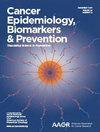Associations of prostate tumor immune landscape with vigorous physical activity and prostate cancer progression
IF 3.7
3区 医学
Q2 ONCOLOGY
引用次数: 0
Abstract
Background: Vigorous physical activity has been associated with lower risk of fatal prostate cancer. However, mechanisms contributing to this relationship are not understood. Methods: We studied 117 men with prostate cancer in the University of North Carolina Cancer Survivorship Cohort (UNC CSC) who underwent radical prostatectomy, and 101 radiation-treated prostate cancer patients in FASTMAN. Structured questionnaires administered in UNC CSC assessed physical activity. In both studies, digital image analysis of H&E-stained tissues was applied to quantify Tumor Infiltrating Lymphocytes (TILs) in segmented regions. Nanostring gene expression profiling in UNC CSC and microarray in FASTMAN were performed on tumor tissue and a 50-gene signature utilized to predict immune cell types. Results: Vigorous recreational activity, reported by 34 (29.1%) UNC men, was inversely associated with TILs abundance. Tumors of men reporting any vigorous activity versus none showed lower gene expression-predicted abundance of Th, exhausted CD4 T cells and macrophages. T cell subsets, including Treg, Th, Tfh, exhausted CD4 T cells, and macrophages were associated with increased risk of biochemical recurrence, only among men with ERG-positive tumors. Conclusions: Vigorous activity was associated with lower prostate tumor inflammation and immune microenvironment differences. Macrophages and T cell subsets, including those with immunosuppressive roles and those with lower abundance in men reporting vigorous exercise, were associated with worse outcomes in ERG-positive prostate cancer. Impact: Our novel findings contribute to our understanding of the role of the tumor immune microenvironment in prostate cancer progression, and may provide insight into how vigorous exercise could affect prostate tumor biology.前列腺肿瘤免疫景观与剧烈运动和前列腺癌进展的关系
背景:剧烈运动与致命前列腺癌风险降低有关。然而,造成这种关系的机制尚不清楚。研究方法我们研究了北卡罗来纳大学癌症幸存者队列(UNC CSC)中接受根治性前列腺切除术的 117 名前列腺癌男性患者,以及 FASTMAN 中接受放射治疗的 101 名前列腺癌患者。在 UNC CSC 中进行的结构化问卷调查对体力活动进行了评估。在这两项研究中,H&E染色组织的数字图像分析被用来量化分割区域中的肿瘤浸润淋巴细胞(TIL)。在 UNC CSC 中对肿瘤组织进行了纳米抗原基因表达谱分析,在 FASTMAN 中对肿瘤组织进行了微阵列分析,并利用 50 个基因特征来预测免疫细胞类型。研究结果34名(29.1%)UNC男性报告了剧烈的娱乐活动,这与TILs的数量成反比。有剧烈活动与无剧烈活动的男性肿瘤中,Th、衰竭CD4 T细胞和巨噬细胞的基因表达预测丰度较低。T细胞亚群(包括Treg、Th、Tfh、CD4 T细胞衰竭和巨噬细胞)与生化复发风险的增加有关,仅在ERG阳性肿瘤男性中存在。结论是剧烈活动与较低的前列腺肿瘤炎症和免疫微环境差异有关。巨噬细胞和T细胞亚群,包括那些具有免疫抑制作用的亚群和那些在报告剧烈运动的男性中丰度较低的亚群,与ERG阳性前列腺癌较差的预后有关。影响:我们的新发现有助于我们了解肿瘤免疫微环境在前列腺癌进展过程中的作用,并可让我们深入了解剧烈运动如何影响前列腺肿瘤生物学。
本文章由计算机程序翻译,如有差异,请以英文原文为准。
求助全文
约1分钟内获得全文
求助全文
来源期刊

Cancer Epidemiology Biomarkers & Prevention
医学-公共卫生、环境卫生与职业卫生
CiteScore
6.50
自引率
2.60%
发文量
538
审稿时长
1.6 months
期刊介绍:
Cancer Epidemiology, Biomarkers & Prevention publishes original peer-reviewed, population-based research on cancer etiology, prevention, surveillance, and survivorship. The following topics are of special interest: descriptive, analytical, and molecular epidemiology; biomarkers including assay development, validation, and application; chemoprevention and other types of prevention research in the context of descriptive and observational studies; the role of behavioral factors in cancer etiology and prevention; survivorship studies; risk factors; implementation science and cancer care delivery; and the science of cancer health disparities. Besides welcoming manuscripts that address individual subjects in any of the relevant disciplines, CEBP editors encourage the submission of manuscripts with a transdisciplinary approach.
 求助内容:
求助内容: 应助结果提醒方式:
应助结果提醒方式:


